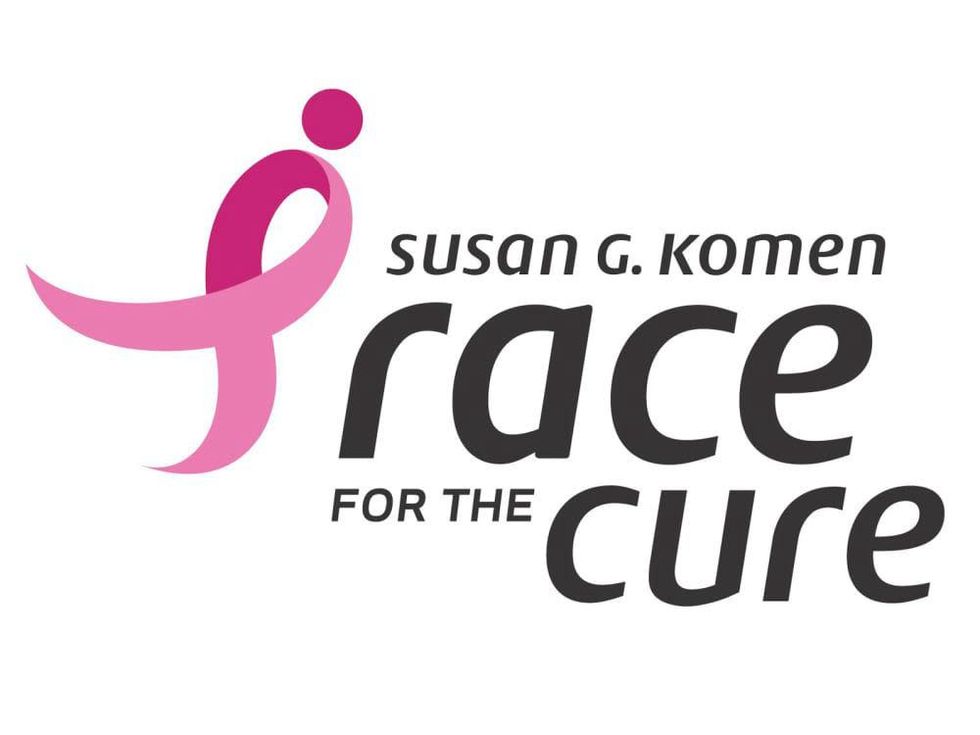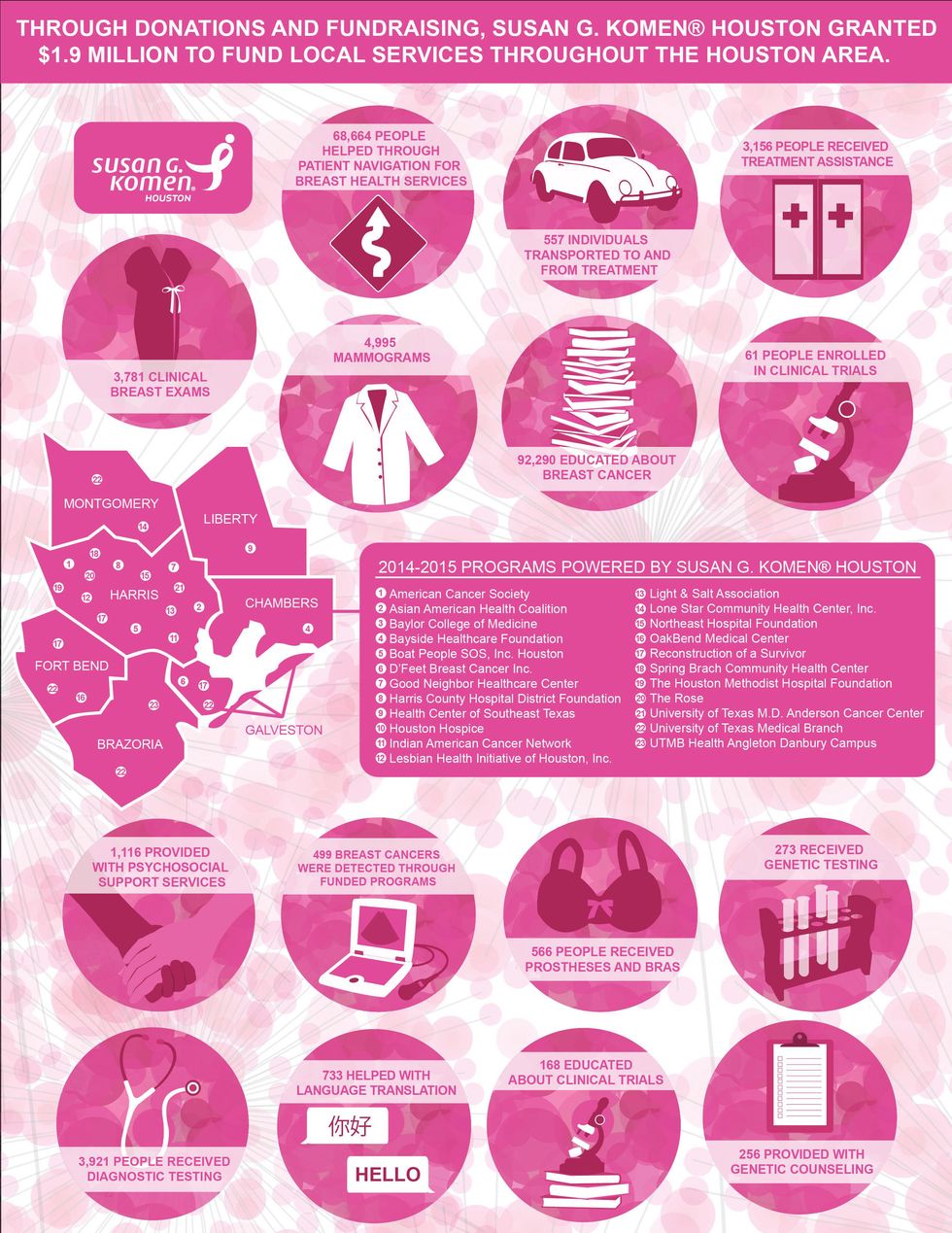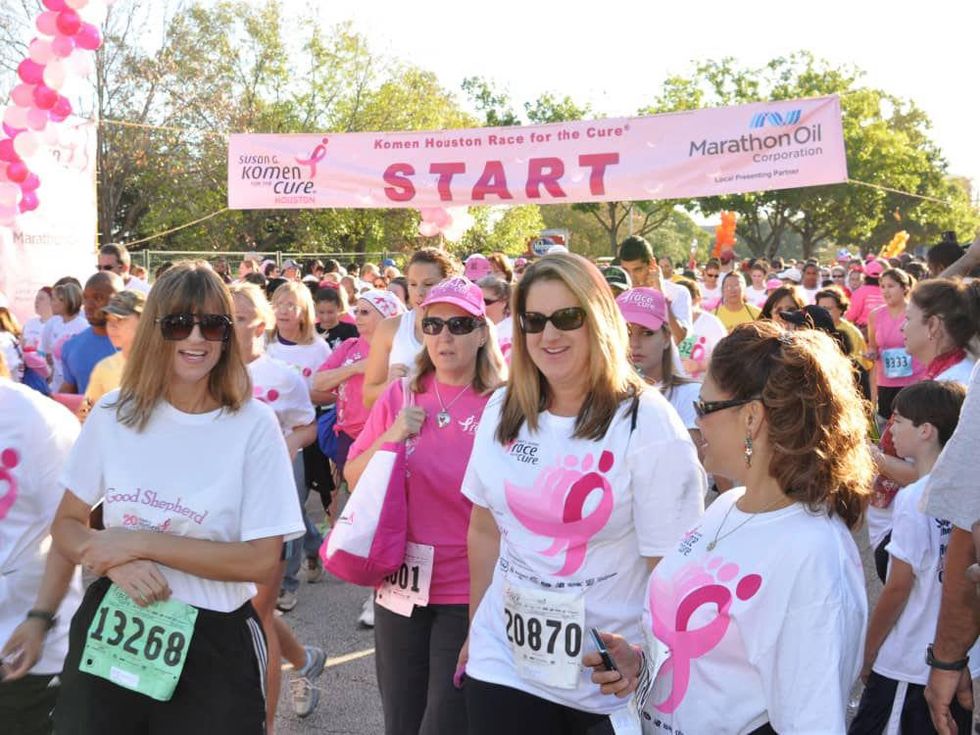Lessons Learned
Komen conflict with Yom Kippur demonstrates true meaning of forgiveness
Most Houstonians are familiar with the pink ribbons, pink store fronts, pink gloves adorned by players in the NFL, a City Hall illuminated in pink, and the overall “pinking out” of Houston throughout the month of October. And for the past 23 years, on the first Saturday of that month, downtown Houston is a sea of pink, as Susan G. Komen Houston kicks off Breast Cancer Awareness Month with our annual Komen Houston Race for the Cure fundraiser.
Besides racing in tutus, ribbons and hot pink boas, what are these passionate supporters raising funds for?
We never meant an ounce of disrespect to the community, and understand that we have offended many people. We are truly sorry.
In 2014, Susan G. Komen Houston granted $1.9 million for local lifesaving breast cancer education, screening, treatment and support services and awarded an additional $809,000 to national research, contributing to the overall $48 million Komen Houston has donated to the Greater Houston area through annual community grants programs since 1990.
Each year, we are hoping to make an even greater impact, dedicating even more funds to Komen grantees. The Race for the Cure, Komen Houston’s largest and most financially impactful fundraiser, is coming up on Oct. 4, which unfortunately falls on the Jewish High Holiday of Yom Kippur.
We recognize the mistake we made in scheduling the Komen Houston Race for the Cure on Yom Kippur and would like to extend a sincere apology to the Jewish community of Houston. We never meant an ounce of disrespect to the community and understand that we have offended many people. We are truly sorry.
Few options
Because our race is traditionally held on the first Saturday of each October, we did know the date five years in advance. However, we unfortunately did not realize the conflict this year’s date had with Yom Kippur until shortly after the 2013 Race for the Cure had concluded. We tried to work with the city of Houston and its various partners to change the date of this year’s race as soon as we were made aware of the conflict but, ultimately, were left with very few options and were unfortunately unsuccessful in moving forward with a new date or location.
He shared that while the Jewish people do not have to accept every apology, as each mistake is unique, the Jewish faith teaches that a sincere apology, with steps to make sure you don’t repeat this same mistake, can be forgiven.
To the Jewish community, and anyone offended by the date of this year’s Race for the Cure, we are truly sorry. If we could go back and do it over differently, we absolutely would.
Over the past few weeks, we have been in touch with many rabbis within the seven-county area we serve in order to apologize to them personally, as well as to their congregations. Many of the responses we’ve received have been positive, and in the spirit of the Jewish holiday, forgiving.
We are working with several of these rabbis to make sure we are moving forward with their congregations and with the Jewish community, at large, in a positive direction in the future. We were a part of the groundbreaking research surrounding the increased occurrence of the BRCA gene in Ashkenazi Jews and are very familiar with the increased risks in this community. We have extended an offer to these synagogues, and any others that are interested, to speak to their congregations after the holidays about breast cancer screenings and early detection, as well as support services.
In speaking with one local rabbi, his explanation of the Jewish view on apology and forgiveness really resonated with me. He shared that while the Jewish people do not have to accept every apology, as each mistake is unique, the Jewish faith teaches that a sincere apology, with steps to make sure you don’t repeat this same mistake, can be forgiven.
We are aware that we made a grave mistake in scheduling this year’s race date, and have since investigated dates over the next five years, and, unfortunately, have already found several conflicts with religious holidays. Because of this, we already have meetings scheduled with both the city of Houston and with other venues to ensure we are able to find new dates or a new location for future race days, making sure this is addressed well in advance as to not be an issue again.
I can promise you, we have learned from this mistake and will make sure this does not happen again.
No. 1 fundraiser
The Race for the Cure is Komen's No. 1 fundraiser for the year. Seventy five percent of funds from Komen Houston’s annual donations and fundraising throughout the year go directly to education, early detection and screening, treatment and support services right here in Houston; the other 25 percent goes to national research, but because of our renowned medical center in Houston, much of it actually stays here in the Texas Medical Center.
As the No. 1 affiliate in the nation, Komen Houston supports over 20 local grantees that help uninsured or underinsured individuals in their fights against breast cancer. More specifically, in 2013, Komen Houston’s fundraising efforts allowed Houstonians to receive 3,781 clinical breast exams, 4,995 mammograms, transportation to and from treatment for 557 individuals, psychosocial support services for 1,116 people, diagnostic testing for 3,921 women and men, and to detect 499 cases of breast cancer through Komen-funded programs.
These funds ensure that Houstonians have access to the organizations we grant funds to and allow those grantees to continue serving Houstonians. We hope Houstonians hear our apology and will join us next year at the Race for the Cure.
Adriana Higgins is executive director of the Susan G. Komen Houston affiliate.




 Boo's Burgers chef-owner Joseph Boudreaux is a Rising Star nominee. Photo by Michael Anthony
Boo's Burgers chef-owner Joseph Boudreaux is a Rising Star nominee. Photo by Michael Anthony